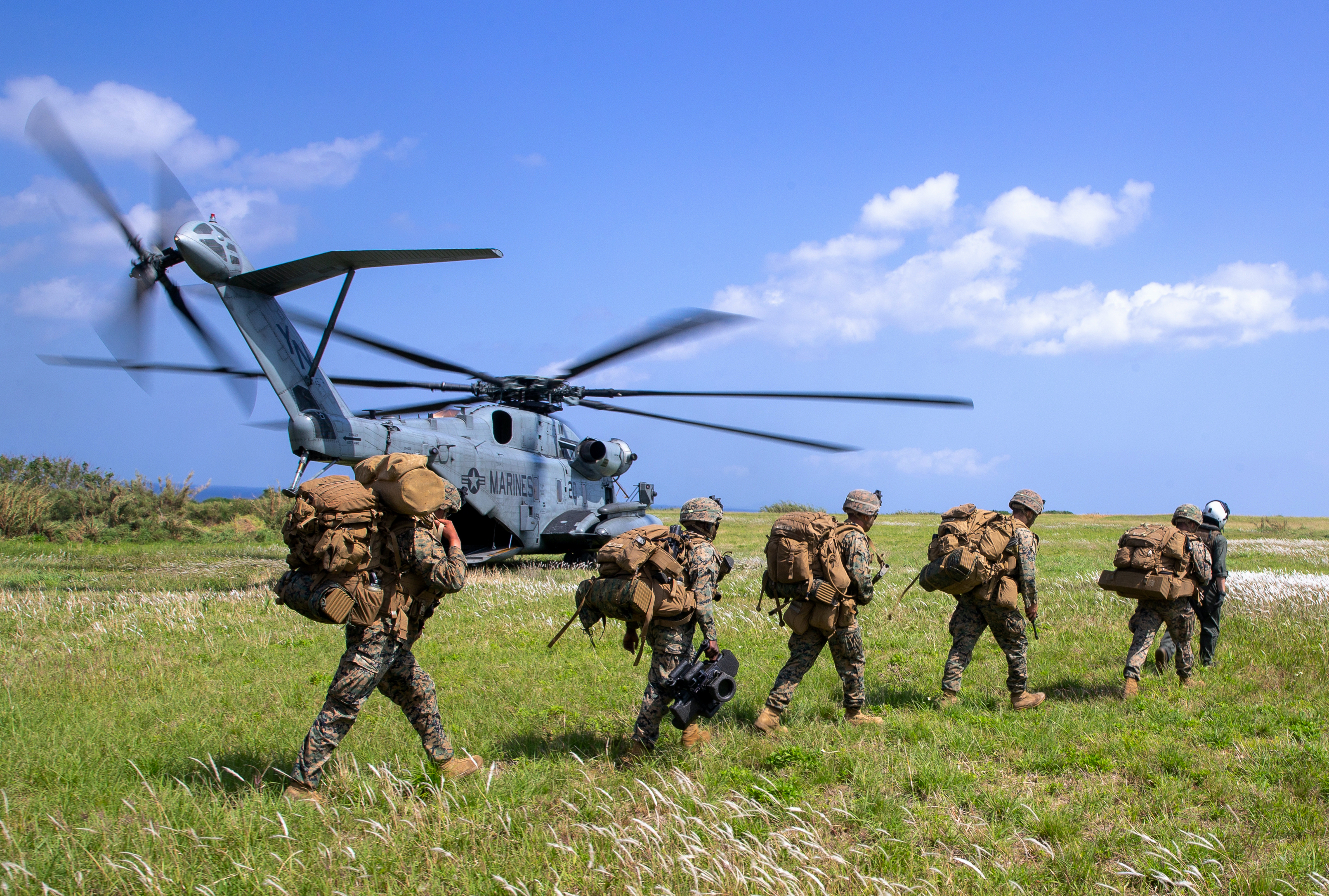
Winning the hearts and minds of Okinawans is critical to strengthening Japan’s own defenses against China, Russia and North Korea, one of Japan’s leading security experts said Thursday.
Support from Okinawans is also key to smoothing over difficulties in Tokyo’s military alliance with Washington, said Kunihiko Miyake, the research director at the Canon Institute for Global Studies.
Speaking at a Hudson Institute online forum, Miyake said China’s missile launches that landed in Japan’s exclusive economic zone should be viewed as “another black ship” for Tokyo. He was referring to the unexpected arrival of an American flotilla commanded by Matthew C. Perry in 1853 that within a year opened Japan to a trade agreement with the United States. China launched the missiles last month to show its anger over House Speaker Nancy Pelosi’s (D-Calif.) visit to Taiwan.
Now with Washington and Tokyo voicing support for Taiwan, the Status of Forces Agreement between the two nations has taken on new significance. It “has been the most difficult issue” to resolve over the years, Miyake said. One example of that difficulty is the seven years-long controversy surrounding the relocation of Marine Corps Air Station Futenma.
The American military presence on 31 installations located on Okinawa remains a concern among Okinawans as tensions with China has risen.
What makes Okinawa so strategically important is geography, Miyake said. The threat from China to Japan comes from the sea and the south. Okinawa is about 500 miles north of Taiwan. About 70 percent of the U.S. military presence in Japan is on Okinawa.
In a serious review of the agreement, he suggested “increasing joint use of bases” in Okinawa. The U.S. forces assigned to Okinawa “would be regarded as guests” of the Japanese Self-Defense Forces. He added that 70 to 80 percent of the miliary bases on the island are under American control.
“It’s a headache for Okinawans,” he said.
Miyake argued this would be one step necessary “to make ourselves more ready for a contingency.”
Looking at Tokyo’s defense spending, Miyake said the government has “to raise the Japanese public’s awareness” of the need to increase defense spending from 1.2 percent of gross domestic product. He noted the NATO standard for its members is to reach 2 percent of GDP and allocate that percentage to security.
The public also needs to understand the reasoning for increased defense spending that is likely to emerge in three important national security-related strategy documents due out by the end of the year.
“It will be very difficult” to move all these proposals through the Japanese Diet, he said.
In earlier remarks, Miyake said, “we cannot defend ourselves” without an ally, like the United States. But Japan needs to help secure itself as well through security spending and strategy.
“Even if we have an alliance, if you don’t have a defense, allies won’t help you,” making it imperative that the Japanese public see what the current close military relationship between Moscow and Beijing means in terms of their own security. Less than a week ago, the Chinese and Russian navies held joint live-fire drills around Japan as part of a larger military exercise.
If nothing is done, Miyake added, “we won’t have enough bullets; we don’t have enough missiles” in the nation’s arsenal for a prolonged conflict. He also noted shortfalls in ships for the Japan Maritime Self-Defense Force and also funds to re-align Japan’s ground forces so they’re more like the U.S. Marine Corps.
“In my neighborhood, we have 2.5 threats” that need to be addressed, Miyake said, referring to China, Russia and North Korea. Tokyo “could do more with the Quad,” the informal security and economic arrangement between Japan, the U.S., Australia and India. He also cited the need for closer coordination with Seoul and Washington in dealing with Pyongyang and Beijing.
Miyake, who has diplomatic experience in the Middle East, said Tokyo’s future security can’t be solely focused on the Indo-Pacific. Japan’s economy is dependent on sea lines of communication into the Middle East for energy and trade with Europe.
“Did the 5th Fleet leave the Gulf? Did the [U.S.] Air Force leave the Gulf?” after the withdrawal from Afghanistan, Miyake asked rhetorically, referring to the Middle East-based U.S. 5th Fleet. “No,” he added. “Without them we wouldn’t have the sea lines of communication.”
He said a strong NATO stabilizes European security and reminds Russian President Valdimir Putin that “a dictator’s mistakes are much more difficult to amend,” like his invasion of Ukraine. The Feb. 24 unprovoked attack not only drew the alliance closer together, but moved Sweden and Finland to apply for membership. He added that the NATO alliance also welcomed Japanese Prime Minister Fumio Kishida and South Korean President Youn Suk-yeol to the June meeting in Madrid.
“The Russians made a big mistake” not realizing that their largest security challenge was China, not NATO, Miyake argued.





